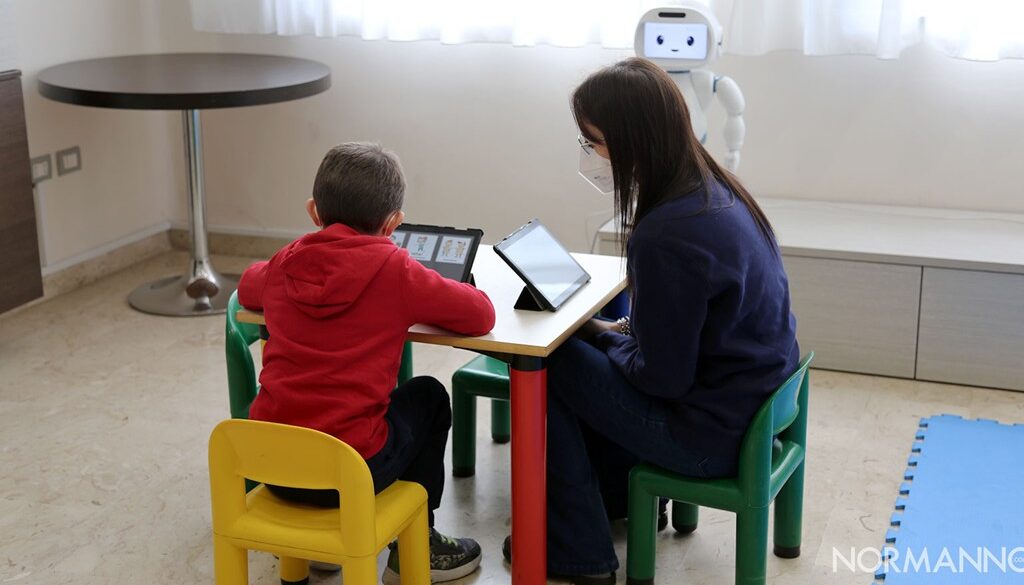
The Institute for Biomedical Research and Innovation (IRIB-CNR) in Messina, Italy, has been at the forefront of developing and validating robot-assisted behavioral therapy for autistic children. Over years of clinical research, the institute has designed multiple rehabilitation protocols targeting language, visuospatial, and social interaction difficulties, showing that when therapy is mediated by robots, its effectiveness significantly increases.
A recent study published in Children (MDPI, 2022) by Prof. Giovanni Pioggia and his research team identified QTrobot, alongside Nao, Kaspar, Face, and Zeno, as one of the most validated and widely used robots worldwide for autism intervention.
QTrobot’s Role in Research-Based Interventions
Within IRIB-CNR’s research, QTrobot has been used to support behavioral and developmental therapies aimed at enhancing:
Social communication and reciprocal interaction
Joint attention and imitation skills
Emotional recognition and regulation
Adaptive and goal-directed behaviors
QTrobot’s predictable, expressive, and child-sized humanoid design makes it an ideal platform for structured yet engaging therapy. By mediating interactions between the therapist and the child, QTrobot helps reduce anxiety, sustain motivation, and provide a safe, consistent environment for social learning.
Data-Driven and Adaptive Therapy
One of the unique research advantages of QTrobot-assisted therapy is its ability to capture objective behavioral data during sessions. This quantitative feedback enables researchers and clinicians to track developmental progress over time with high precision.
Furthermore, with the integration of AI, QTrobot can learn and adapt to both interindividual differences (between children) and intraindividual variations (within the same child across time). This adaptive learning allows for personalized and dynamic therapy, overcoming one of the major limitations of traditional interventions in the face of autism’s clinical heterogeneity.
Toward the Next Generation of Child-Centered Robots
According to the IRIB-CNR team, the future of behavioral therapy lies in highly expressive humanoid robots that combine emotional intelligence, advanced sensor systems, and adaptive algorithms. QTrobot, with its balance of emotional expressiveness, robust design, and AI-driven interaction, represents this new generation of therapeutic tools.
As confirmed by the researchers, robot-assisted therapy (RAT) with QTrobot has shown positive outcomes in improving attention, social communication, imitation, and emotional engagement — reinforcing its role as a scientifically validated tool in modern autism care.